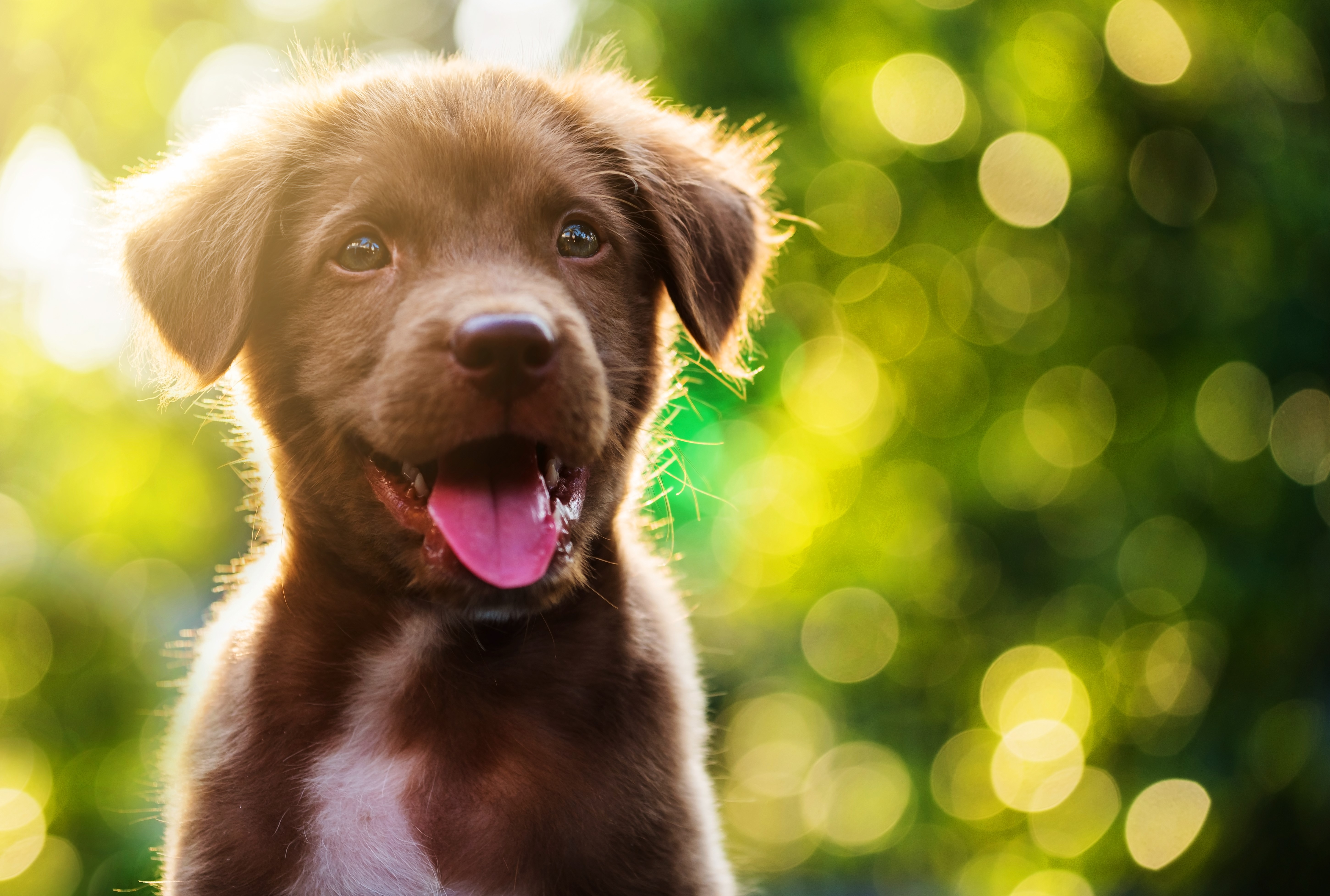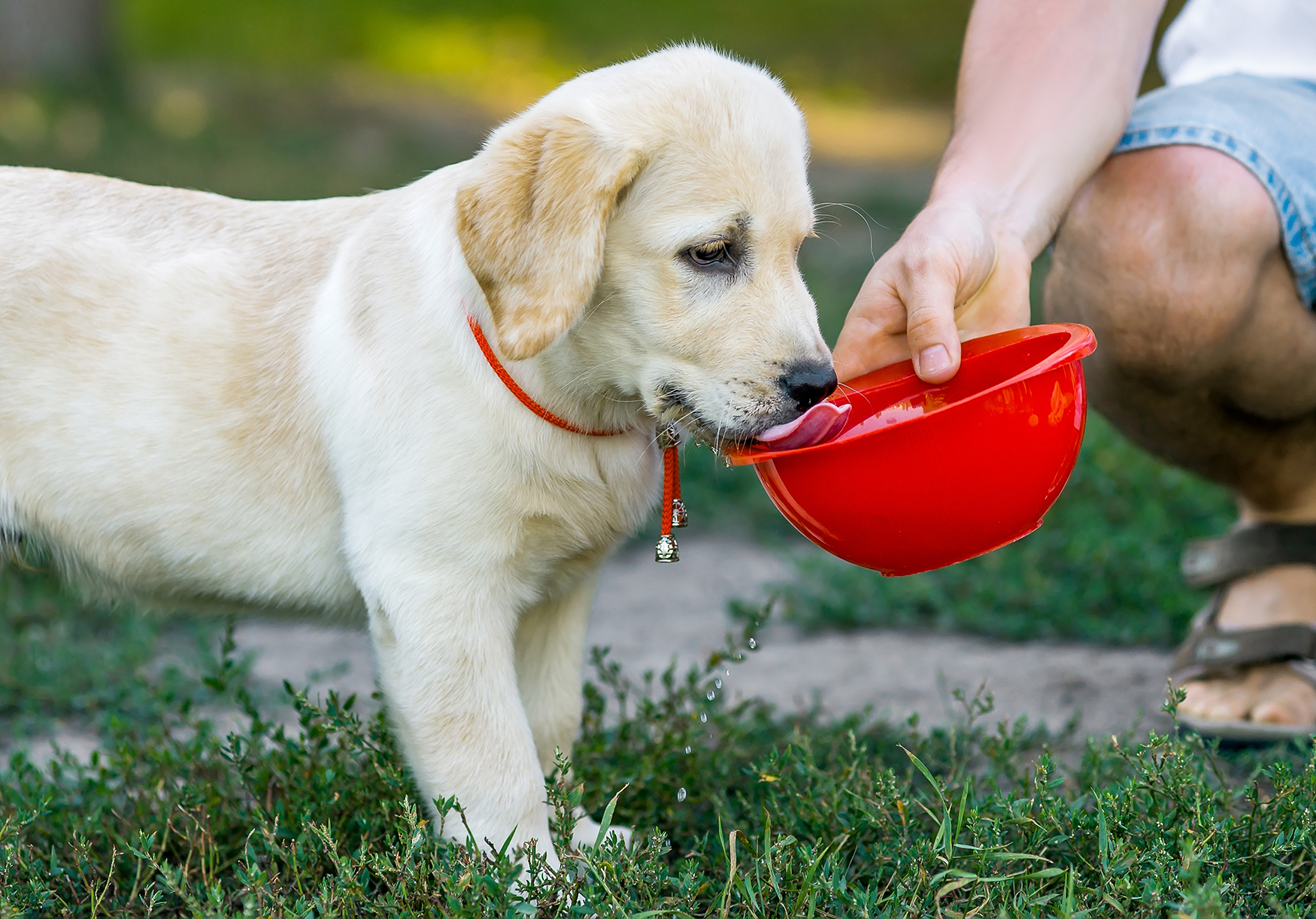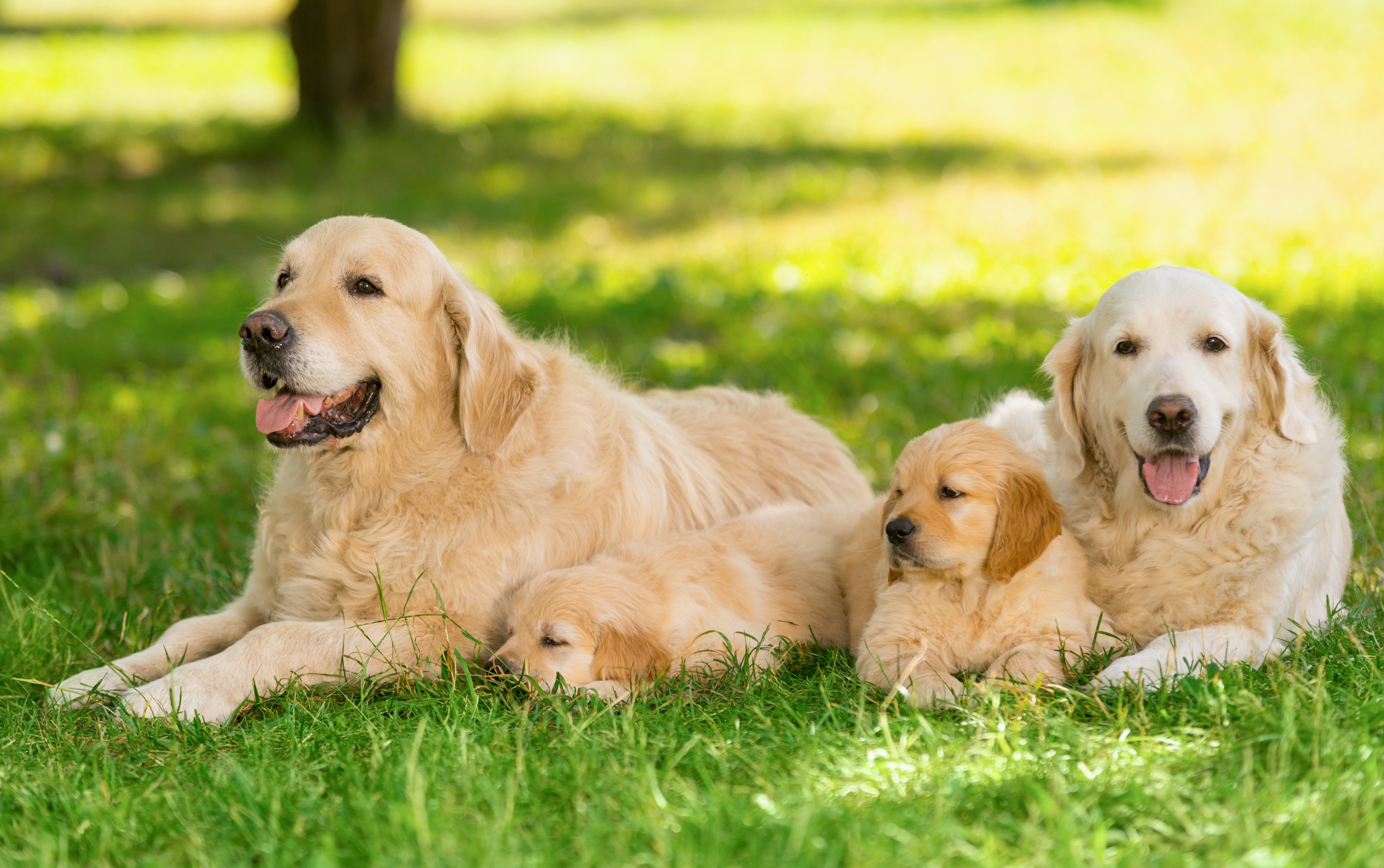A Guide to Training Your Puppy to Use a Wireless Fence

Congratulations! You’ve just brought home a new bundle of fluff and you’re eager to get him out in the yard and acclimated to your SpotOn Fence. Maybe you already have another pooch who has free reign of the backyard and you’d like them to be able to bond and romp together and enjoy their time off-leash… but hang on! There are a few things you’ll need to take into account when it comes to training your puppy on a virtual system.
When Can You Train a Puppy on an Electric Fence?

Puppies will grow… sometimes a lot!
“Dogs grow ‘up’ for the first year and then ‘out’ for the second,” says SpotOn trainer Nicole Skeehan, CPDT-KA. “For the first 12 months, they are all gangly and legs. But the second year, they start to thicken up and put some weight on.” So, keep in mind that a collar that fits your pup now may not fit them in 12-24 months’ time.
The SpotOn Fence works using a collar that currently comes in three sizes, Small, Medium and Large. The Small collar fits necks from 10-14 inches, the Medium fits necks from 12-18 inches, and the Large fits necks from 17-26 inches. Because the collar has technology running through the strap, there are limitations to the size adjustments that can be made – you can’t just punch an extra hole in the strap if it’s too big or too small, that would damage the tech.
If your pup is still growing, you may want to wait until they are full grown to purchase a properly fitting collar; a collar that is too large may slide around your pup’s neck, causing the antenna to point at the ground; this could result in a loss of connectivity to the satellites overhead.
Additionally, if you’re using static correction, a too-loose collar may not allow the contact points to connect with your pup’s neck, rendering the static correction sporadic or useless. A collar that is too tight may cause pain or irritation to your dog’s neck.
If your puppy seems to be growing more than you thought he would, don’t worry – we’ve got you covered! We offer a 90-day return policy in the event you purchase a collar and find that it is too big or too small for your pooch.
Before you jump in and train your puppy on the SpotOn Fence, you’ll want to make sure you’ve taught them some basic obedience skills first! The SpotOn Fence should not be a pup’s first experience with training. According to the American Kennel Club, basic puppy training should consist of five basic skills – come, sit, stay, lay down, and loose-leash walking. While it’s true that young puppies have short attention spans and a lot of energy, that doesn’t mean they can’t be trained! In actuality, it’s a great time to begin.
It used to be thought that you shouldn’t begin training a dog until they were six months old or older, but that’s not the case. “Puppies are capable of learning much from an early age,” says Debra Horwitz, DVM. “...delaying training means missed opportunities for the dog to learn how you’d like him to behave.”
You can begin gently training a pup as early as seven weeks of age! Keep training sessions brief – five minutes is a good length – and aim for about 15 minutes of training per day.
Check out our training videos for come, sit and stay, and loose-leash walking.
Static Correction

We do not recommend training a pup on a virtual fence until they’re over six months of age. If you’d like to use the SpotOn Fence with your pup before they’ve reached six months, you can train them to the fence using “target” or “touch” training. “Target,” or “touch,” means that an animal should touch a predetermined body part to a particular object – in this case, they should touch their nose to the SpotOn home base target, or to another object in the center of your fence.
“Touch” can also come in handy in many real-life scenarios, like when you need to redirect your pooch from distractions on a walk, want him to ring a bell to let you know he wants to come in or go out, when your pup is greeting someone new, or when you need to help take their mind off of scary things.
Watch SpotOn training videos for touch training.
We hope this helps give you the information you need to make the best, informed choices for both you and your pup. Introducing your puppy to some basic obedience training early on will help give them a solid foundation on which to build new skills – including the skills they need to begin living life off-leash!



